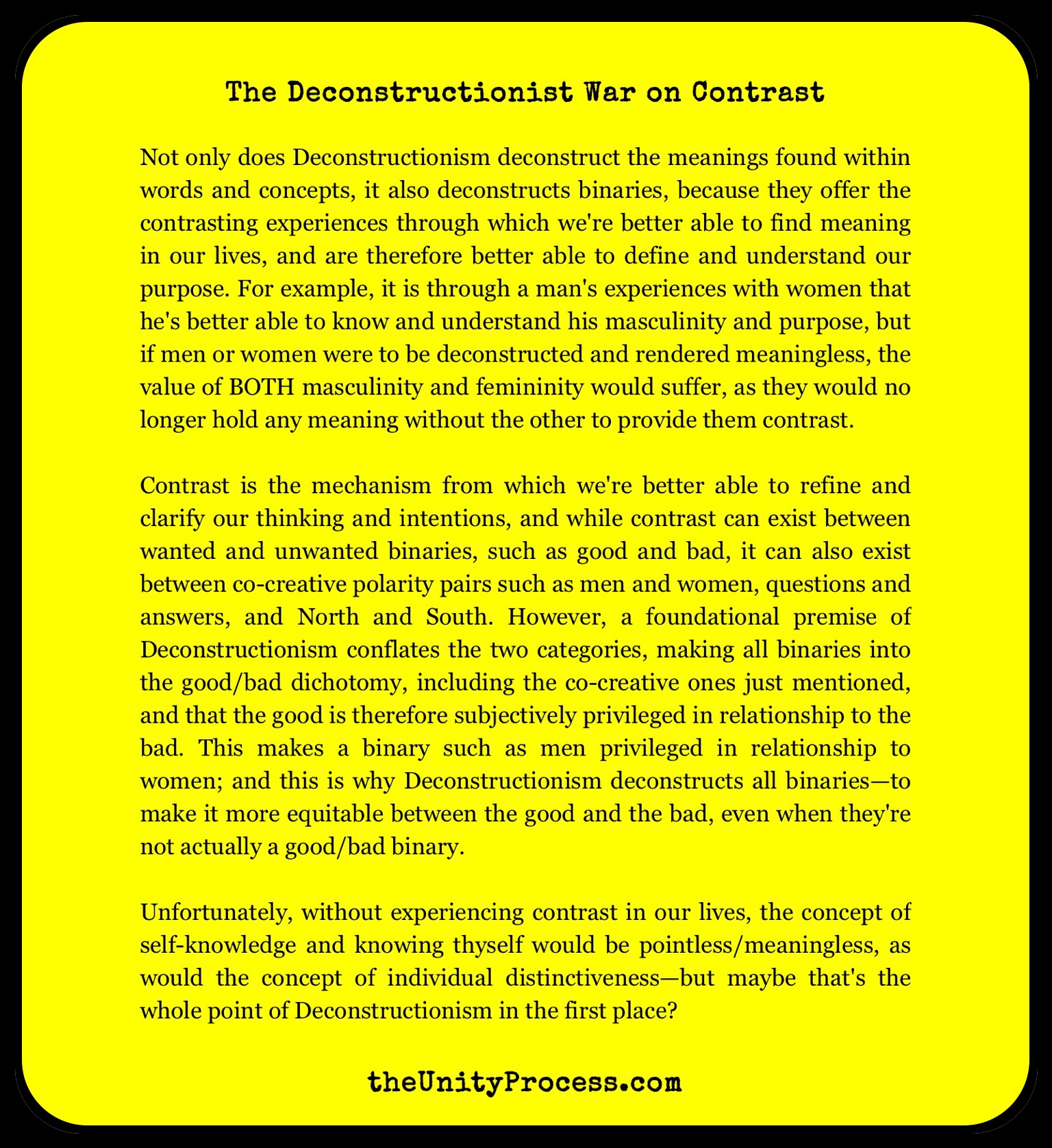“Everything is dual; everything has poles; everything has its pair of opposites.” ~The Kybalion, Polarity: The Fourth Hermetic Principle
Not only does Deconstructionism deconstruct the meanings found within words and concepts, it also deconstructs binaries, because they offer the contrasting experiences through which we’re better able to find meaning in our lives, and are therefore better able to define and understand our purpose. For example, it is through a man’s experiences with women that he’s better able to know and understand his masculinity and purpose, but if men or women were to be deconstructed and rendered meaningless, the value of BOTH masculinity and femininity would suffer, as they would no longer hold any meaning without the other to provide them contrast.
Contrast is the mechanism from which we’re better able to refine and clarify our thinking and intentions, and while contrast can exist between wanted and unwanted binaries, such as good and bad, it can also exist between co-creative polarity pairs such as men and women, questions and answers, and North and South. However, a foundational premise of Deconstructionism conflates the two categories, making all binaries into the good/bad dichotomy, including the co-creative ones just mentioned, and that the good is therefore subjectively privileged in relationship to the bad. This makes a binary such as men privileged in relationship to women; and this is why Deconstructionism deconstructs all binaries—to make it more equitable between the good and the bad, even when they’re not actually a good/bad binary.
Unfortunately, without experiencing contrast in our lives, the concept of self-knowledge and knowing thyself would be pointless/meaningless, as would the concept of individual distinctiveness—but maybe that’s the whole point of Deconstructionism in the first place?
~Nathan Martin
